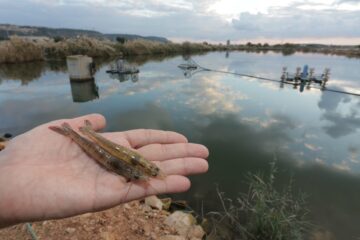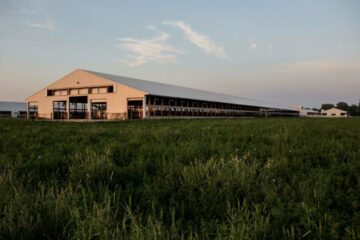The role of antibiotics in addressing food insecurity
As I’ve written here before, food insecurity is an issue on which I have deep feelings.
As a teenager, I served on a mission to Haiti. The hunger and malnutrition I saw was heartbreaking.
That experience, combined with a love for animals, pushed me toward a career in veterinary medicine.
While in the U.S. we are blessed to have abundant food, having seen firsthand the impact of hunger and malnutrition on children, I believe addressing hunger is part of our duty as fellow humans.
A variety of applaudable efforts are being made to address world hunger and malnutrition. This one, announced last year, caught my attention.
The Challenge of Change Commission engages public research universities – arguably the world’s greatest scientific and educational resource – in food and nutrition security.
The commission has representation from government, nongovernmental organizations and the private sector along with prominent university researchers and leaders, something lacking in other efforts.
Public research universities are viewed as being uniquely positioned to address a complex issue like food insecurity because of their broad academic, research, and community expertise and experience.
Much has been said about the need to produce enough food for the planet’s 9.7 billion people by mid-century, but as noted by commission leadership, it will take more than simply increasing food production.
A commission report outlines seven “challenges of change” that lie ahead.
Access
- Increase yields, profitability and environmental sustainability simultaneously.
- Develop the varieties and breeds needed for sustainable food systems.
- Decrease food loss and waste through more efficient distribution systems.
Availability
- Create and share resources that serve all populations.
- Ensure inclusive and equitable food systems.
Utilization
- Address the dual burdens of undernutrition and obesity to ensure full human potential.
- Ensure a safe and secure food supply that protects and improves public health.
The responsible use of antibiotics can play a key role in addressing some of these challenges, and it’s encouraging to note that a World Health Organization official offered this thoughtful insight when asked about antibiotics used in animals that produce food: “If we lose that ability, we perhaps begin to lose the ability to have adequate food supplies in the world.”
Antibiotics help keep food safe and more affordable. They keep animals healthy, which studies show reduces bacteria entering the food supply. Keeping animals healthy allows farmers to operate more efficiently, which has the added benefit of holding down the cost of food.
Keeping animals healthy through the responsible use of antibiotics is also better for the environment. Untreated sick animals grow more slowly, requiring more food and water. More grain must then be grown for feed, requiring more farmland, fertilizer and water.
Sick animals have a larger environmental impact, while healthy animals use fewer natural resources. Practices that allow us to prevent disease and treat sick animals, resulting in the use of fewer natural resources, are good for the environment and good for everybody.
While it’s imperative that animals receive proper care, farmers must also be allowed to use the latest technology in order to produce food efficiently and affordably.
I was struck by the story of Diane Sullivan, a former homeless woman from Massachusetts who fought against a ballot issue there that outlaws certain livestock and poultry housing options.
She researched the issue and learned approval of the ballot issue would increase the cost of food.
“Like most everyone, I don’t want to be cruel to animals, but I refuse to be cruel to people,” Sullivan said.
She called for the formation of a coalition that not only represents the animal agriculture industry, but also those struggling to put food on the table to advocate against placing severe restrictions on farmers.
As a veterinarian, I am dedicated to making sure farmers have the ability to feed the hungry. The oath I took reads, in part:
“…I solemnly swear to use my scientific knowledge and skills for the benefit of society through the protection of animal health and welfare, the prevention and relief of animal suffering, the conservation of animal resources, the promotion of public health and the advancement of medical knowledge.”
During my more than 20 years as a veterinarian, I have learned a lot about animal health issues. Antibiotics remain one important tool to help farmers and ranchers produce safe and affordable food. Using them responsibly can play a key role in overcoming the challenge of global food and nutrition insecurity.
I welcome your thoughts and questions. Please feel free to send me an email at AskDrDorman@pahc.com or call me at 844-288-3623. You can also browse our Resource Library to learn more about this important topic.

